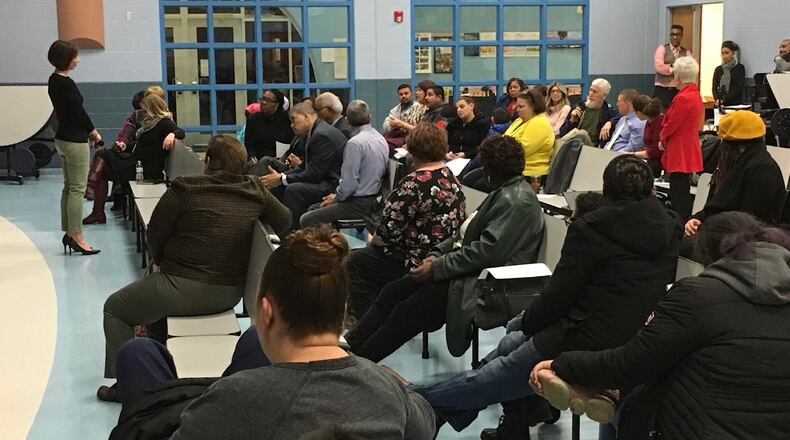JULY: Dayton schools shift strategies on family engagement
Brown said it’s important not just to get more families involved, but also to get them oriented to what the school district is calling The Dayton Way — a six-point strategy of curriculum, teaching, customer service, engagement, positive culture and professionalism.
“We involve families in the broader community in decision making,” Brown said. “We make connections between what’s learned at home and what’s learned at school. Then we can look at the whole picture of The Dayton Way.”
The 19 members of the Parent, Family and Community Council are a mix of parents and grandparents of students, DPS employees and other Dayton residents. They are: Keisha Anderson, Carolyn Bohler, Jocelyn Cooke, Kendrick Curry, Laura Duverglas, Rachel Easter, Bryan Erstgaard, Kalene Gordon, LaShawn Graham, Ellen Ireland, Nancy McSherry, Yolanda Phillips, Emily Riggs, Jaimee Ryan, Dion Sampson, Will Smith, Joy Stokes, Willa Strickland and Cameron Walker.
Easter said she knows what it’s like to get an education from a “struggling, under-resourced district” after she attended and taught in Trotwood schools. The Dayton resident said the council can serve as an intermediary between families and school district leadership.
MARCH: New family committee being formed by DPS
“We can bring things to the board that maybe parents don’t feel comfortable doing, or don’t have time to do,” Easter said. “The everyday parent who has a problem or frustration — odds are more parents have that same problem. We can gather those things together, rather than one parent complaining to one principal, when we have 25 schools.”
DPS officials have acknowledged they need to improve both in communicating better with students’ families, and helping those families be better involved in their children’s education. Superintendent Elizabeth Lolli has said given the size of the district, efforts are better started at the individual school level, making sure families feel welcome in their schools.
At town hall meetings, parents have raised issues with follow-through in whether DPS officials return calls and emails, creating questions of trust. Brown said building relationships and trust will be at the forefront of the council’s effort.
“We’ve decided to go out and meet the families at the point of their need,” she said. “We have to knock on doors, make personal phone calls, we have to send postcards.”
DECEMBER: Families give DPS leaders advice at town hall meeting
Bohler said when her children were in Dayton schools, her husband was active in parent-teacher organizations, and now she wants to help. She immediately raised the issue of white families fleeing Dayton for the suburbs, which she said is sometimes based on uninformed assumptions about DPS.
“White families can be proud and supportive and excited about Dayton Public Schools,” Bohler said. “My children received fantastic educations there, and my daughter is emphatic about her children being in Dayton Public.”
Brown said it’s crucial for schools to connect with families and listen to them, regardless of whether parents bring a lot or a little to the table in terms of their own education or resources. She said those parents can help teachers understand so much about their children if they get involved.
“For every child, the first educator they have is a parent,” Brown said.
About the Author

